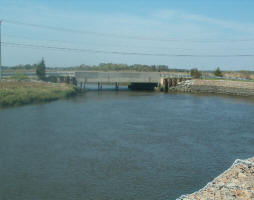 EU Council Conclusions on EU Integrated Flood Management
EU Council Conclusions on EU Integrated Flood Management
At a Justice and Home Affairs Council meeting on 12 May 2011 in Brussels, the Council of the European Union adopted conclusions on Integrated Flood Management within the European Union. Among other measures, the Council calls on Member States to promote the use of available alert systems such as EFAS (European Flood Alert System) and the GMES ERS (Global Monitoring for Environment and Security Emergency Response Service) to improve, together with other forecasting models, early warning for the citizens.
In its conclusions, the Council underlines the need for Member States and the EU to take an integrated approach to flood management, building upon existing Member State and EU legislation and policies, with special attention paid to the Floods Directive (Directive 2007/60/EC of 23 October 2007 on the assessment and management of flood risks), and encompassing the entire disaster management cycle (prevention, preparedness, response and recovery). In order to further develop this integrated approach, it is also necessary to strengthen cooperation and the sharing of information between relevant authorities involved at national, regional and local levels in disaster and water management.
The Council stresses the need to respond rapidly and effectively to cascading events, when floods trigger different types of subsequent hazard, and the fact that flood forecast and early warning are some of the prerequisites for a successful reduction of flood damage; therefore, it recommends stepping up early warning systems, in addition to improving preparedness, at local, regional and national level.
Member States are called to take, among others, the following measures:
- Promote optimal use of risk assessment and mapping guidelines addressing different types of disasters in order to improve emergency response plans;
- Include in emergency response plans relevant references to the protection of human health, the environment, cultural heritage and economic activity including critical infrastructure, protected areas, industrial installations and/or establishments involving the use of dangerous substances and contaminated sites;
- Promote the use of available alert systems such as EFAS (European Flood Alert System) and the GMES ERS (Global Monitoring for Environment and Security Emergency Response Service) to improve early warning for the citizens;
- Promote the implementation of the monitoring and early warning modes of CECIS (Common Emergency Communication and Information System) with the aim of sharing information and ensuring a more rapid response, and further develop national or multi-national civil protection modules related to flood management to be registered in CECIS.
The Council also calls on the Commission to take specific measures, such as:
- Further develop a common approach to flood management operations, along with Member States and relevant international stakeholders;
- Promote among Member States the development of innovative methods and procedures and the dissemination of experience and best practices;
- Develop, together with the Member States, reference scenarios for floods using risk assessment information provided by the Member States;
- Disseminate the results and raise awareness of EU co-funded projects and exercises related to flood management.
| Contact information | n/a |
|---|---|
| News type | Inbrief |
| File link |
http://www.consilium.europa.eu/uedocs/cms_data/docs/pressdata/en/jha/121964.pdf |
| File link local |
|
| Source of information | Council of the European Union |
| Keyword(s) | European Union, Water governance, cross-border relation, water management, flood, flood protection |
| Subject(s) | POLICY-WATER POLICY AND WATER MANAGEMENT , RISKS AND CLIMATOLOGY |
| Relation | http://www.emwis.net/topics/floods |
| Geographical coverage | European Union, |
| News date | 07/06/2011 |
| Working language(s) | ENGLISH |
 you are not logged in
you are not logged in





